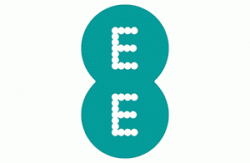EE UK Calls for BT Phonebook Charge to be Cut from Line Rental

Mobile operator and ISP EE has called on the UK communications regulator, Ofcom, to remove the “unjustified and discriminatory” charge for BT’s Phonebook, which gets passed on to consumers via the price they pay for standard fixed phone line rental.
Like many providers EE are obliged to fund the phonebook, which BT can also sell advertising space through (note: this helps to keep its cost low), and so they’ve commissioned an ICM survey of 2,000 online respondents in order to find out precisely how many people actually make use of it.
Advertisement
Unsurprisingly the results found that 72% of people usually search for phone numbers online and only 17% use the BT Phonebook. Similarly 75% of people who have a Phonebook don’t even know where they keep it and 88% said they wouldn’t pay anything to have it.
EE Statement to Ofcom (Fixed Market Access Review)
The context of this is that EE continues to believe that Openreach’s ability to pass on charges for the Phonebook under the current Charge Control regime is unjustified and discriminatory. The policy wrongly ignores the fact that the BT Phonebook is a commercial business and inappropriately charges us for a service that TalkTalk, [Sky Broadband] and [Virgin Media] customers benefit from. It also incentivises needless paper waste.
As you know, the mechanics of the current regime are that every WLR customer has to pay for the BT Phonebook through their line rental charge. This cost is currently unavoidable , whether a customer requires a phone book or not, as Openreach bundle it within the wholesale line rental charge. Under the current charge controls, we understand that the amount included for directories in the annual WLR wholesale rental charges for 2013/14 is £2.23 for each WLR customer.
This is significant – for an operator with around 700,000 WLR customers, such as EE, this is an approximate cost of £1.4m per year. Removal of these costs (and replacement of them with the much lower costs of supplying Phonebooks only to those customers who actually still require them) will obviously allow re-investment by WLR providers, helping to promote competition within the industry.
In fairness £2.23 per customer per year isn’t going to make a huge difference when most people are currently paying upwards of around £180 per year for the service, although EE are right to look at the issue of whether or not it wouldn’t be better offered as an optional extra or perhaps scrapped entirely.
On the other hand it’s important to remember that several million people still do not have Internet access and their positions will obviously not be reflected by an online survey of 2,000 people. Meanwhile Internet users are far less likely to see the need for such a book because we already have access to a vastly superior digital index.
Mark is a professional technology writer, IT consultant and computer engineer from Dorset (England), he also founded ISPreview in 1999 and enjoys analysing the latest telecoms and broadband developments. Find me on X (Twitter), Mastodon, Facebook, BlueSky, Threads.net and Linkedin.
« Vodafone UK Pumps Extra GBP100m into 150 New Shops and 1400 Staff
SSE Telecoms Adds 30 New PoPs to its UK Fibre Optic Network »






















































Comments are closed